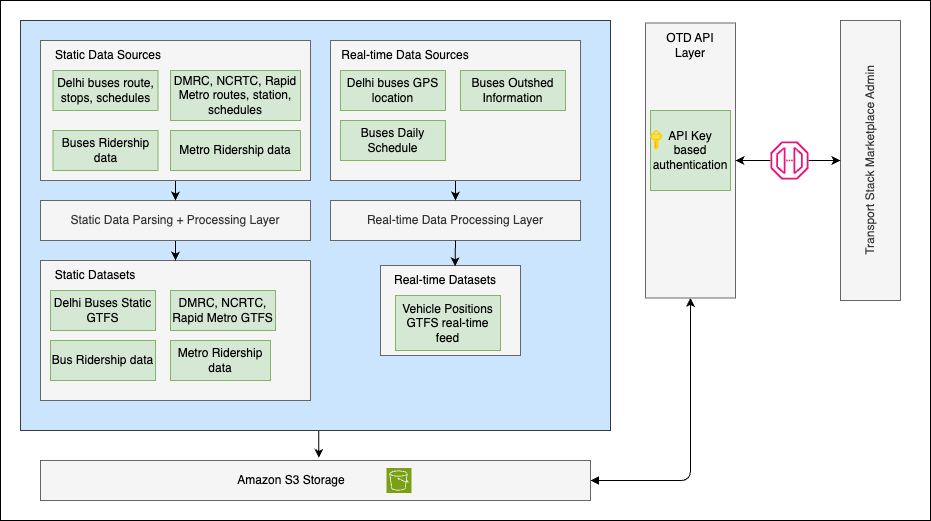Open Transit Data (OTD)
The Open Transit Data (OTD) platform aggregates, processes, and disseminates a wide range of transport data, with a focus on metropolitan transit systems. It is designed as a foundational tool for urban planning, real-time traffic management, and commuter information services.
OTD enables seamless data flow from collection to consumption, supporting accuracy, speed, and security for large-scale metropolitan transit data.
- Standard GTFS components (Stops, Routes, Trips, Stop Times, Shapes, Fare Rules, Fare Attributes)
- Additional datasets such as OD (Origin-Destination) flow, operational schedules, accessibility, and shared mobility
Core Features
- The system supports both real-time and scheduled transit data, ensuring accurate and reliable information across all journey stages.
- It enables seamless integration with multimodal and shared mobility services, allowing users to plan and switch between buses, metros, bikes, and ride-sharing options within a unified experience.
- Developers can easily connect through open APIs backed by comprehensive and well-maintained documentation, enabling flexibility in third-party application development and smart city platforms.
- The platform is built on a scalable, secure, and cloud-native architecture, capable of supporting high demand, ensuring data protection, and allowing rapid deployment across diverse transit environments.
System Design
The system is engineered to facilitate seamless data flow from collection to consumption, ensuring accuracy, speed, and security at every step. The design addresses the need for handling large-scale transit data representative of a major metropolitan city.

Key Features
- Real-time and scheduled transit data
- Integration with multimodal and shared mobility services
- Open APIs and robust documentation
- Scalable, secure, and cloud-ready architecture
Open Source Repository
The source code and API documentation for OTD are available on GitLab:
Open Transit Data Service APIs GitLab Repository
Navigate the sidebar to explore detailed data models for Bus, Metro, Data Exchange, Accessibility, and Shared Mobility.